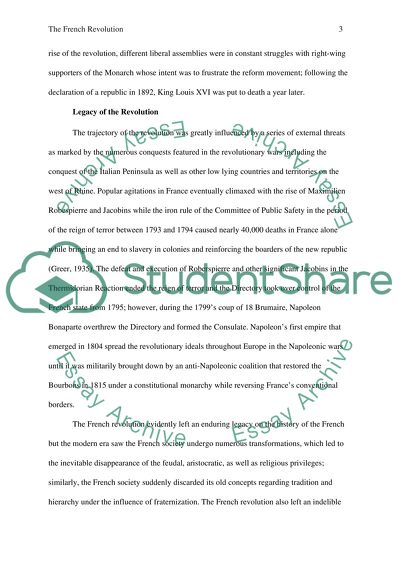Cite this document
(“The French Revolution Essay Example | Topics and Well Written Essays - 1500 words - 2”, n.d.)
Retrieved from https://studentshare.org/history/1641433-the-french-revolution
Retrieved from https://studentshare.org/history/1641433-the-french-revolution
(The French Revolution Essay Example | Topics and Well Written Essays - 1500 Words - 2)
https://studentshare.org/history/1641433-the-french-revolution.
https://studentshare.org/history/1641433-the-french-revolution.
“The French Revolution Essay Example | Topics and Well Written Essays - 1500 Words - 2”, n.d. https://studentshare.org/history/1641433-the-french-revolution.


